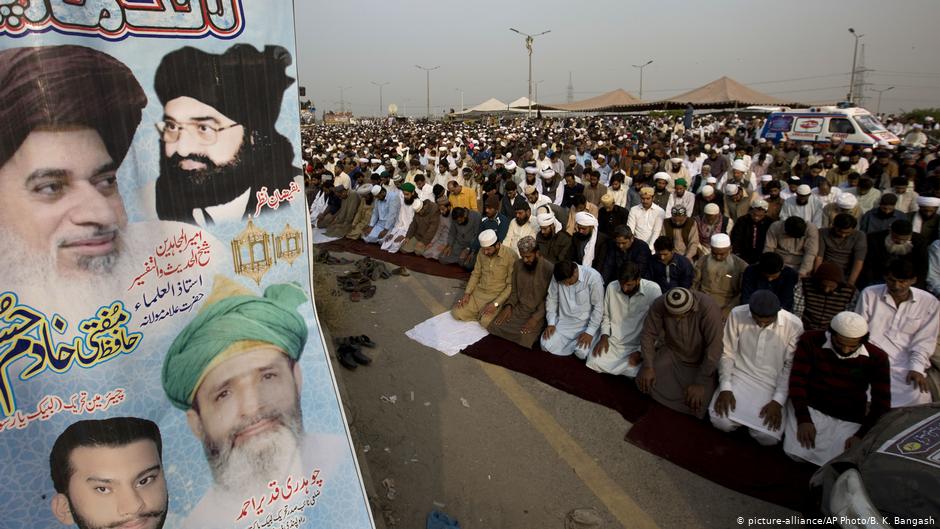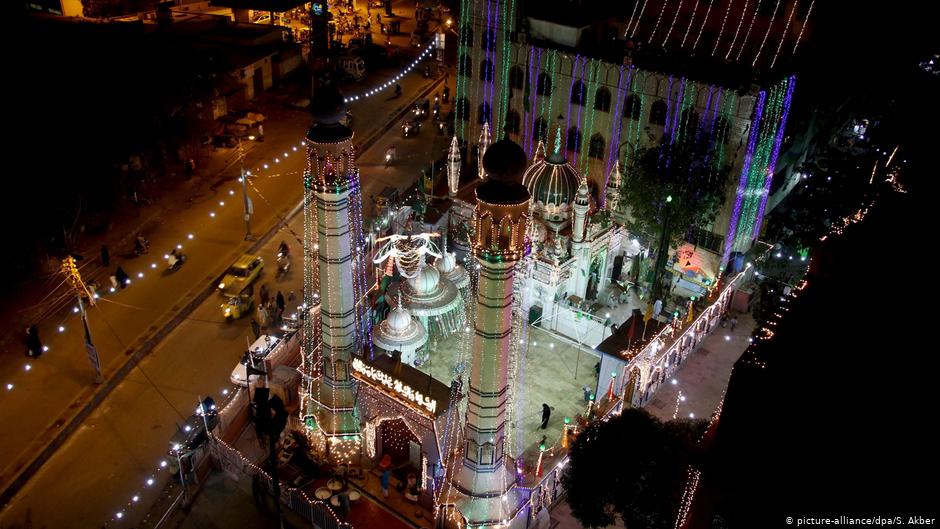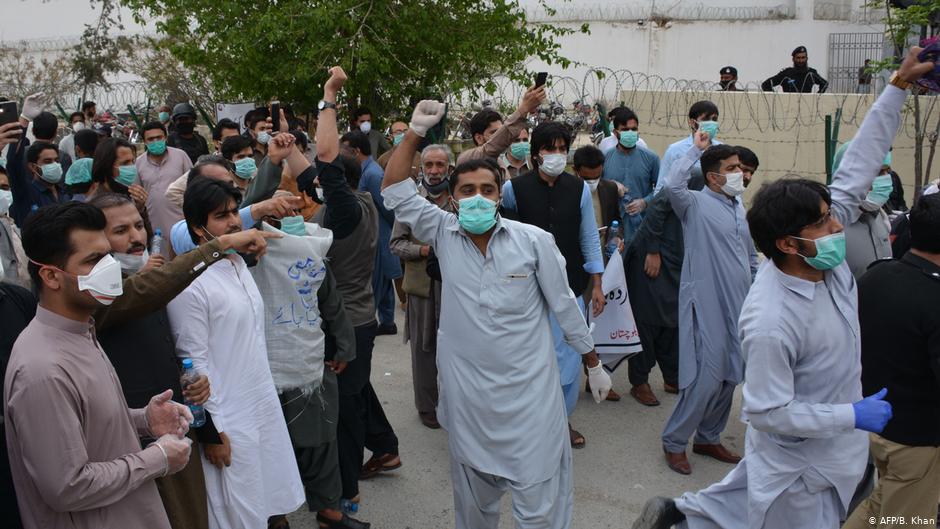Coronavirus and Pakistan's wayward clerics

In early February Pakistan reported the first COVID-19 cases in the country. In order to prevent the virus from spreading, Pakistan's provincial governments imposed various curfews and bans on gatherings. These included banning gatherings for Friday prayers or other prayers in mosques.
This provoked sometimes bizarre reactions from the country's religious leaders. For some, such restrictions were an attack on their faith and for others, a conspiracy by the Americans to destroy Islam.
On 15 April, the most important representatives of Sunni Islam in Pakistan announced in a press conference that they no longer wanted to comply with the government's restrictions. From now on they would open mosques for daily prayers, Friday services and special prayers during Ramadan. The restrictions had already been deliberately flouted in many places to date.
For example, SHO Sharafat Khan, a senior district police officer in Karachi, recently tried in vain to break up a Friday meeting for which hundreds of people had gathered in a mosque. The police could only watch helplessly, even as the officers were attacked by the crowd, and finally left without having achieved anything.
Reckless and ignorant
Pakistan's Muslim scholars have been resolutely reserved in their criticism of such violations. Neither the Pakistani Prime Minister Imran Khan nor the Pakistani President Alvi dare to condemn these offences publicly, because discussing the archaic opinions of religious scholars is taboo in Pakistan. Yet the coronavirus has been seen to spread through religious gatherings, especially in Pakistan.

When the first coronavirus cases reached the region in February, the government allowed Shia pilgrims to return from Iran unchecked, knowing full well that Iran had become a hotspot for the spread of the virus.
At the same time, a Tablighi Jamaat gathering was allowed in Lahore with almost one hundred thousand participants, from whence groups of preachers later set out on missionary trips throughout the country, thus spreading the virus throughout the country.
Islamisation and the "Kalashnikov culture"
The fact that politicians have closed their eyes to the machinations of religious groups is the result of decades of policy of appeasement towards the clerics. When the-then socialist government made its first pact with the country's Islamist parties in 1974, the religious authorities finally became stakeholders in the Pakistani power apparatus.
A few years later, the military dictatorship under Zia-ul-Haq proclaimed the so-called "Islamisation" of society as official state policy. Fundamentalist indoctrination became part of the curriculum in schools and madrassas, the religious seminaries, throughout the country. This radicalisation of society was encouraged by arms supplies and financial aid from Saudi Arabia and the USA, so that a whole generation of Pakistanis grew up with fanatical ideas amid the so-called "Kalashnikov Culture".
Since then it seems impossible to curb the excesses of this policy. Nobody dares discuss religious topics these days, because such voices are quickly branded as heretics and infidels and must fear for their own life and limb.
Threat of economic collapse
The current situation could have disastrous consequences. Pakistan is still at the beginning of the pandemic. If the number of infections rises dramatically, the already ailing Pakistani economy is likely to collapse completely.
A few weeks ago, one of the world's leading economists and professor at Princeton University, the Pakistani-born Atif Mian, advised the Pakistani government to take immediate action and implement a nationwide shutdown before the pandemic reaches a scale that would hit the country hard.

The Pakistani government is now finding it difficult to implement its own measures consistently. The measures are by no means anti-religious or even anti-Islamic. After all, in times of epidemics, Islam demands that protective measures be taken, since the protection of human life is one of the highest legal rights, the so-called maqasid ash-sharia.
During the Prophet Muhammad's lifetime, community prayers in mosques were suspended during storms and the Prophet himself commanded people to practice self-isolation in times of epidemics. Islamic theologians in Egypt or Saudi Arabia have derived their prohibition of gatherings in mosques from these accounts. Even the holiest mosques of Islam in Mecca and Medina are subject to such restrictions.
The clergy's defiant rejection of these measures is causing horror and disapproval in some sections of the Pakistani population.
The sooner Pakistani society and government puts religious leaders in their place, the better and more effectively the country will be able to tackle the pandemic. But it will take courage to do so.
Mohammad Luqman
© Qantara.de 2020
